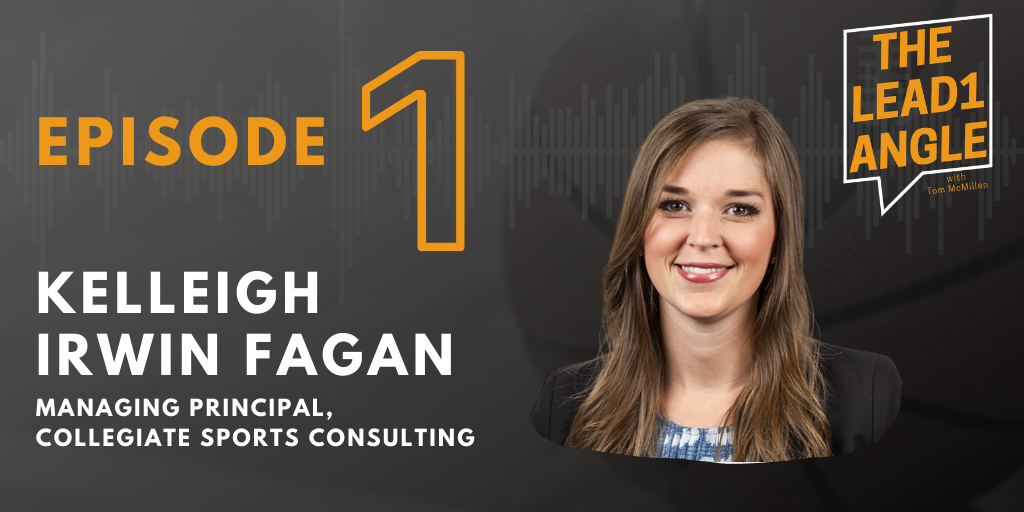LEAD1 Launches Podcast and Video Series with Kelleigh Fagan
POST DATE: 7.30.20

Title IX’s Implications on NIL, Considerations for Cutting Sports and Students Return to Campus
Kelleigh Fagan recently sat down with CEO of Lead1, Tom McMillen, to talk about a number of legal issues currently evolving in the collegiate sports world on a daily basis. Here is a quick summary of their discussion. Listen to the full podcast here.
Considerations for Cutting Sports
We’ve seen budget decisions being made in the form of cutting sports, which has most significant ramifications on Title IX when it comes to financial aid and proportionality requirements; however, opportunities do not have to be equal but do need to be equitable in one of the three Title IX participation prongs:
- Proportional opportunities as compared to overall campus population
- Showing history of adding sports in underrepresented gender
- Survey that shows interest of student body is being met from an athletics standpoint
Before an institution cuts a sport, institutions should be talking with general counsel office as there are a lot of considerations and Title IX should be one of them.
Title IX Implications on NIL
LEAD1 did a recent survey of their 130 FBS Athletic Directors that revealed a huge concern of Title IX consequences from NIL. One of the issues AD’s are concerned about is equitable pay between male and female, but as of now it, does not present a big concern because third parties are paying the student-athletes and not the institution. The real issue of Title IX and NIL could come from the type of support or oversight the schools are providing through the NIL process. For example, if schools are providing educational training on building a brand through a third party, they need to be sure they are providing the education equitably between male and female student-athletes. What you do not want to see is schools signing on with third parties only for the teams of one gender. Title IX has a “laundry list” of items where student athletes need to be treated equitably in terms of medical services, facilities, access to coaching, marketing and publicity, etc. It is currently yet to be seen how NIL could fit into the marketing and publicity aspect. Schools will need to analyze and figure out a system for their student-athletes.
LEAD1 shed light on another concern that the majority of student-athletes that benefit from NIL are going to be male. That could be one concern but some research has shown NIL could actually benefit females significantly. Kelleigh states there would be political or perception concern, but she does not think it is a legal concern as long as schools are not going out of their way to get NIL opportunities for males and completely ignoring female student-athletes. If it is just the fact that more opportunities are coming to star quarterback, that alone should not cause Title IX issues.
Students Return to Campus
We are currently in a unique time where student-athletes are finding their voice now more than ever. Schools should be ready to deal with the potential situation of bringing back sports where some student-athletes are not comfortable participating because of COVID-19. They will need to determine if they will extend their scholarship to them for the year in which they are not participating and potentially one more year if the student-athlete has room on their five-year clock. Some student-athletes may need a clock extension waiver. The NCAA has issued information related to COVID waivers that can be found on www.NCAA.org.
Additionally, we are seeing a lot of pledges that student-athletes are going to take responsibility when it comes to hand washing, sanitation and quarantine expectations, but it is questionable as to whether the liability waivers will hold up in court. College administrators have a difficult job ahead of them to track and trace SA’s – each institution is going to have to come up with their own policies and procedures but NCAA is not issuing anything mandatory. We will see flexibility. What may be working now may not work next week.
If you have any questions or need any assistance as a student-athletes or a campus administrator, contact Kelleigh and our other sports law attorneys at www.cchalaw.com.
